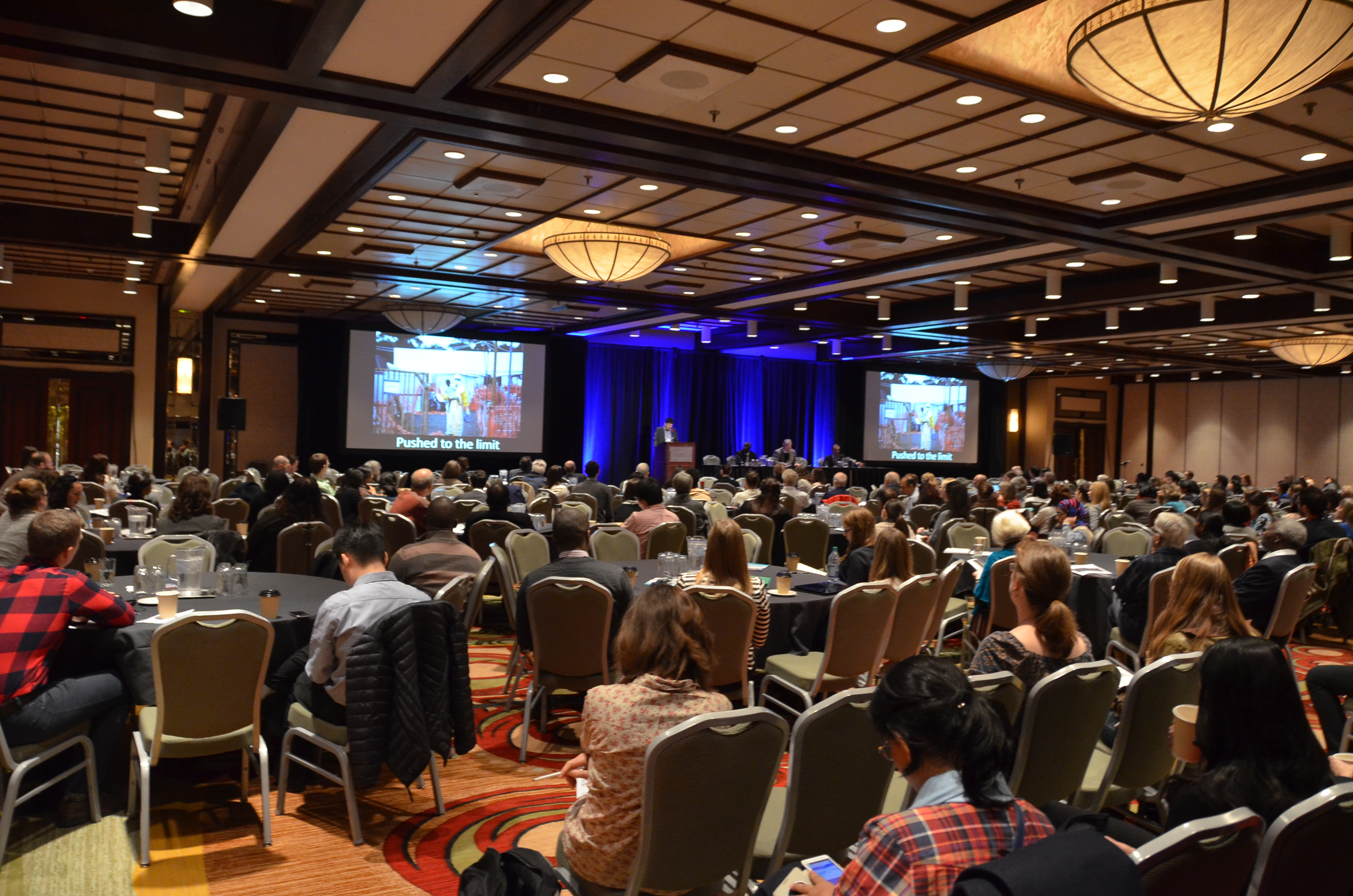After three successful conference days, it was telling to see the ballroom full with participants eager to hear the panellists’ perspectives on the future of Global Health (GH). Shawna O’Hearn (Dalhousie University) set the tone by quoting Paul Grand’Maison: “Global Health is not a right, but an obligation,” echoing what many of us feel deeply and wish to contribute towards.
Moving beyond our colonial legacy
Gilles Bibeau, distinguished anthropologist with many years of thoughtful engagement in Africa, urged us to question assumptions of the existence of universal truths and the notion that concepts developed in the West can explain them. Local and non-western models of knowledge must be valued before they disappear. If we do not change our mental maps of how knowledge is produced and valued, we can never truly expect to change things. It should worry us far more that on a list of the 100 most influential people over the last thousand years as produced by historians in the Americas, only one was African, Nelson Mandela. We as researchers in GH must break with the western hegemony and find true ways to exchange knowledge across boundaries.
The frameworks within which we operate
Duncan Pedersen (McGill University), urged us to be more cognizant of the larger determinants and structures in place and their accompanying effects on the health of all. From the view that emerging diseases in developing countries are seen as a threat to national security in developed countries, the consequences of geopolitical tensions abroad, the effects of climate change pushing our planetary capacity to the limits, the capital investment in trade wars that continues to occur and the aggressive expansion of transnational corporations, we, as researchers and actors in GH can no longer afford to ignore the ongoing shifts in power and accountability occurring on a global scale and declining social justice. Our research findings will contribute to policies that must be applied in this new reality and our research frameworks must find ways to incorporate these dimensions. Global social justice and equity have to help guide funding and research in GH that can accommodate both medical and social innovations.
Continued self-reflection on our motives
Nicholas King (McGill University) used Singer’s metaphor of the “shallow pond”[1] to illustrate the moral imperative that drives us to help those we perceive in danger. But when it comes to GH, the “3-E” pre-conditions for action – Evidence of the problem, Efficacy of the response and Expertise on the solution – are often not met. As health inequalities continue to persist, research is under increased scrutiny, and we must self critique to improve evidence. Intervention efficiency must also be re-examined with awareness of the potential tension between donors’ demands and hard to obtain evidence. We should be wary of the desire to scale-up interventions and should focus instead on smaller context-sensitive studies. Finally our notion of Expertise should be scrutinized to ensure that it doesn’t continue a paternalistic and neo-colonial agenda. Moving forward, we must address and learn from these criticisms, questioning what we know, how we know it and if we should act, before doing so.
Navigating the tensions rather than trying to resolve them
Christina Zarowsky (University of Montreal) drew attention to the many tensions which exist in GH; tensions which we must recognize and learn to navigate. Tension between past and present in GH: our desire to move away from our inescapable past, while recognizing the good that also came from it. Tension between complexity and path dependency; different sets of values; the role of power and trust when working in partnerships; the colonial versus the public GH approach; the importance of regulation – the need for measurement while avoiding managerialism; and the battle for who owns GH – can this be decoupled from markets. Christina concluded with words from her students at UdM who when asked about the future of GH, wrote about the need for : hearing more from Africans and Aboriginal populations; greater transparency (who writes the budgets?), hearing community voices, not only researchers’; seeing research as action; holding leaders and governments accountable; and, finally, humility and generosity.
Mathildah Chithila-Munthali (National Council for Higher Education, Malawi), concluded with a powerful call to move towards collective accountability, eschewing the “them-versus-us” dichotomy to truly affect change; to shift our thinking so that governments and private sector also internalize the shift and realize that how we feel about loss is the same for everyone. The challenges remain: to implement real partnerships, mobilise resources, prepare for the unknown, get value for money while ensuring sustainability and giving opportunities to the young.
As we continue to engage in GH, we shall not forget the provoking challenges the panellists left us with and will strive to incorporate them in our daily research work.
***
Both Valerie and Federica are Strategic Training Fellows in Global Health Research of the CIHR and of the Quebec Population Health Research Network.
Works Cited
[1] Peter Singer, "The Drowning Child and the Expanding Circle", 1997.

